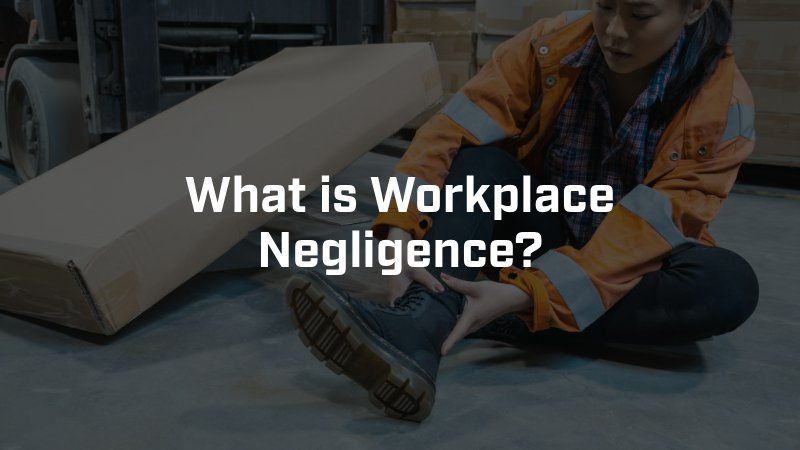What is Workplace Negligence?
Recent Blog Posts
What is Workplace Negligence?
Workplace accidents happen. There's no avoiding that. Even the most well-operated workplace can present unexpected issues. However, there are times when an employer's negligence leads to unsafe working conditions and employee injuries. Here, we want to define or place negligence and examine what this means for an employee because it could mean additional routes for securing compensation.

Examples of Workplace Negligence
There are several examples of workplace negligence that could lead to employees sustaining injuries. This includes, but is not limited to, the following:
- Inadequate training. Every employer should provide proper training to each employee. This training should extend to every facet of the job the employee is expected to perform, including workplace equipment and building safety procedures.
- Poor maintenance. Inadequate maintenance of buildings, vehicles, or equipment can lead to significant injuries. This includes maintenance of any area where an employee is expected to be, as well as any equipment an employee is expected to use.
- Ignoring safety protocols. Each industry has different safety protocols. Every employer should thoroughly understand safety regulations related to their industry and implement these in the workplace. Ignoring safety protocols, such as not providing protective gear or failing to follow safety checks, places employees at risk of injury.
- Overworking employees. Overwork can lead to disaster. Overworked employees are much more likely to be fatigued on the job, which can significantly impact job performance. Those who are overworked are much more prone to sustaining workplace injuries or illnesses.
- Toxic exposure or unsafe work environment. Failing to properly control exposure to hazardous substances or work environments can result in acute or long-term health complications for employees. If an employer knows about potentially hazardous workplace conditions and fails to remedy the situation or provide adequate safety gear, they should be held liable for any injuries or illnesses that occur.
- Negligent training. After a person gets hired, an employer and supervisors should ensure that the new hire is adequately trained. For example, if an individual is going to be required to work in a certain area or handle specific equipment, they should receive separate training for every area or piece of equipment before they are allowed to use the equipment or work in the hazardous area.
Working With an Attorney to Recover Compensation
Unfortunately recovering compensation after a workplace injury or illness can be challenging. The challenges are multiplied when an injury occurs due to the negligent actions of an employer. A skilled worker's compensation attorney in Phoenix can help you through this process. Yes, even though you may be able to receive workers' compensation benefits without much of a struggle, you may be entitled to much more compensation if the injuries occurred due to workplace negligence.
Whereas workers' compensation may pay all medical bills associated with an injury, it will only pay a portion of lost wages, and you will not receive any type of pain and suffering damages. However, if you are able to successfully file a personal injury lawsuit against an employer because of their negligence, you may be able to receive complete coverage of your lost wages as well as pain and suffering damages. Make sure to contact an experienced personal injury attorney in Phoenix for help.





